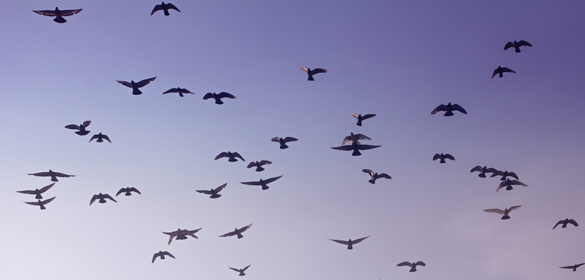
Parasites in Pigeons A Complete Guide for Racing Pigeon Health and Performance
If you’ve been in the pigeon racing world for any length of time, you already know that parasites in pigeons can wreak havoc on a loft. From roundworms and lice to coccidia and mites, these tiny invaders don’t just affect your birds’ health—they can seriously derail performance during training and competition.
Whether you’re a seasoned fancier or new to the sport, understanding the different types of parasites, their effects, and most importantly, how to treat and prevent them is essential to keeping your flock healthy and race-ready.
In this guide, we’ll walk you through everything you need to know about pigeon parasites, including common symptoms, treatment options, and top strategies for preventing reinfestation.
What Types of Parasites Affect Pigeons?
There are two main categories of parasites that pigeon fanciers need to be aware of: internal parasites (like worms and coccidia) and external parasites (like lice and mites).
Internal Parasites
1. Roundworms
Roundworms live in the pigeon’s intestines, feeding off nutrients that the bird needs for energy and growth. Infestations can cause:
-
Weight loss
-
Malnutrition
-
Reduced performance
-
Digestive issues In severe cases, roundworms can even cause intestinal blockages.
2. Hairworms
Hairworms are thread-like and often go undetected because of their size. Despite being small, they are incredibly damaging. Symptoms include:
-
Diarrhea
-
Lethargy
-
Emaciation
-
Poor feather quality
3. Tapeworms
Tapeworms attach to the intestinal lining and steal nutrients. Though less common, they’re still a threat to your birds’ vitality. Signs include:
-
Visible segments in droppings
-
Reduced appetite
-
Weakness and fatigue
4. Coccidia
Coccidiosis, caused by the protozoan parasite coccidia, affects the intestinal lining. It’s especially dangerous in young or immune-compromised birds. Symptoms:
-
Diarrhea (sometimes bloody)
-
Weight loss
-
Poor general condition
-
Stunted growth in squabs
External Parasites
1. Lice
Lice live on the skin and feathers, feeding on dead skin and feather debris. A lice infestation causes:
-
Constant scratching
-
Feather damage
-
Bald spots
-
Restlessness
2. Mites
There are several types of mites:
-
Feather mites
-
Red mites
-
Scaly leg mites Mites can cause:
-
Itching and feather loss
-
Anemia (from blood-feeding mites)
-
Scaly skin on legs and beak
-
Poor performance due to discomfort and weakness
Why Parasites Are a Big Problem for Racing Pigeons
Parasites don’t just make pigeons uncomfortable—they can seriously undermine a racing bird’s performance. Here’s how:
-
Nutrient Drain: Parasites steal essential nutrients, leaving birds weak and undernourished.
-
Immune Suppression: A parasitized bird is more susceptible to secondary infections like canker or respiratory disease.
-
Fatigue and Poor Muscle Tone: Birds with heavy parasitic loads tire quickly and can’t maintain peak flight speeds.
-
Disruption of Breeding Programs: Infected breeders may pass parasites to their offspring, affecting your next generation of racers.Spotting the Signs of Parasite Infestation or Reinfection Early detection is key. Keep an eye out for these common indicators:
General Symptoms:
-
Lethargy or reduced activity
-
Weight loss despite normal eating
-
Ruffled feathers
-
Decreased performance during training
Specific to Internal Parasites:
-
Diarrhea or abnormal droppings
-
Vomiting or regurgitation
-
Visible worms in droppings
-
Poor appetite or growth (especially in young birds)
Specific to External Parasites:
-
Bald patches or excessive scratching
-
Broken or chewed feathers
-
Mites visible on skin or in loft crevices
-
Scaly legs or beak
How to Treat Parasites in Pigeons
The good news? There are effective treatments for nearly every type of pigeon parasite. The key is knowing what to use and when.
Internal Parasite Treatments
| Parasite | Recommended Treatments |
|---|---|
| Roundworms & Hairworms | Levamisole, Fenbendazole, Piperazine |
| Tapeworms | Praziquantel |
| Coccidia | Toltrazuril (Baycox), Amprolium |
External Parasite Treatments
| Parasite | Recommended Treatments |
|---|---|
| Lice & Mites | Ivermectin, Permethrin sprays, Deltamethrin (Exzolt), Pyrethrin-based sprays |
These products can be administered topically, orally, or in drinking water, depending on the type. Always follow manufacturer instructions and consult a vet when in doubt—especially during the breeding or racing season.
Preventing Parasite Reinfestation in Racing Pigeons
Prevention is not just easier than treatment—it’s critical if you want your pigeons to stay competitive. Here’s how to keep your loft parasite-free:
1. Maintain Clean Housing
-
Scrub and disinfect floors, perches, and nesting boxes regularly.
-
Use disinfectants that kill parasite eggs and larvae.
-
Improve ventilation to reduce humidity.
2. Schedule Regular Health Checks
-
Inspect birds weekly for lice or mites.
-
Do fecal tests every 4–6 weeks for worms and coccidia.
3. Establish a Parasite Control Program
-
Deworm regularly based on your vet’s advice.
-
Use lice/mite sprays or powders seasonally.
-
Treat the entire loft at the same time to prevent re-spreading.
4. Quarantine New and Sick Birds
-
Isolate new arrivals for at least 14 days.
-
Treat for parasites during the quarantine period.
5. Limit Exposure to Wild Birds
-
Use screens to block wild bird access.
-
Keep feed and water covered and clean.
6. Support Immune Health
-
Offer a high-quality, balanced diet.
-
Include supplements like probiotics, garlic, or oregano oil to support gut health.
7. Use Loft-Friendly Preventatives
-
Sprinkle diatomaceous earth in nests and bedding to kill mites.
-
Apply loft sprays every few weeks, especially in warmer seasons.
- Pro Tips for a Healthier Loft
-
Rotate Treatments: Avoid resistance by alternating dewormers and mite treatments.
-
Track Everything: Keep a log of treatments, symptoms, and health checks.
-
Be Proactive: Don’t wait for symptoms—schedule routine parasite control as part of your racing pigeon care calendar.
Final Thoughts
Parasites in pigeons are a year-round concern, but with a strong management plan, you can protect your birds, maintain peak performance, and keep your loft healthy.
By identifying problems early, using targeted treatments, and following strict prevention protocols, your birds will not only feel better—they’ll fly better too.
Remember: A healthy pigeon is a fast pigeon.
Want to give your birds an edge?
Consider integrating supplements like probiotics, vitamins, and natural immunity boosters into your pigeon care routine. Not only do they enhance gut health, but they can also help resist parasitic infections from the inside out.

